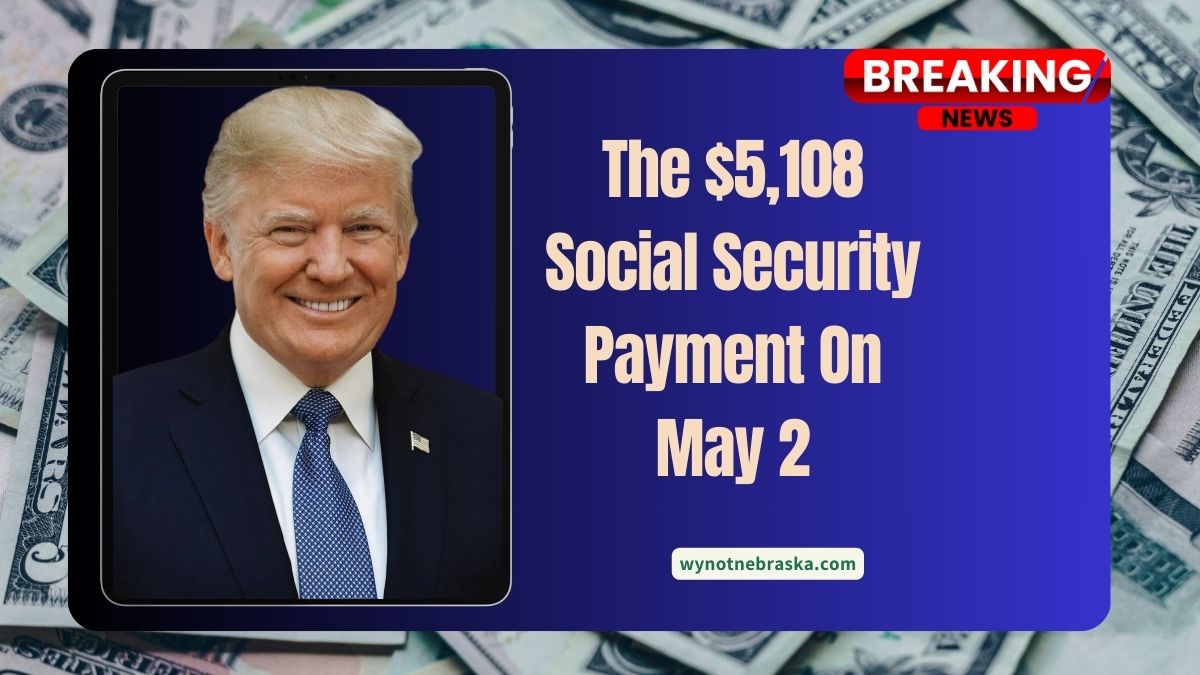Social Security benefits provide essential financial support for millions of retirees and individuals with disabilities across the United States.
However, not all beneficiaries are treated the same when it comes to payment dates and benefit amounts. For a select group of recipients, May 2, 2025, is a critical payday—and for a fortunate few, the check could reach up to $5,108. But reaching this maximum amount is not automatic and involves fulfilling specific long-term criteria.
Let’s break down who qualifies for the May 2 payment, what’s needed to receive the maximum Social Security benefit, and why only a few Americans meet these requirements.
Who Receives a Social Security Check on May 2?
The May 2, 2025 payment date is not for all beneficiaries. It is specifically designated for Group 1—individuals who started receiving Social Security benefits before May 1997.
This group includes both retirees and Social Security Disability Insurance (SSDI) recipients.
Why May 2 Instead of May 3?
Typically, Group 1 is paid on the 3rd of each month. However, when that date falls on a weekend or holiday, the payment is rescheduled to the nearest prior business day. Since May 3, 2025, falls on a Saturday, payments are issued on Friday, May 2 instead.
- No extra steps are needed—payments are deposited automatically.
- Payments are made via Direct Deposit or Direct Express cards, depending on the beneficiary’s chosen method.
How to Qualify for the Maximum $5,108 Social Security Check
Receiving the maximum Social Security benefit of $5,108 per month in 2025 is rare and requires meeting strict criteria related to age, work history, and income level.
Eligibility Conditions for $5,108 Monthly Benefit:
| Requirement | Description |
|---|---|
| Age at Retirement | Must delay retirement until age 70 |
| Work History | Must have worked for at least 35 years |
| Income Level | Earned maximum taxable income each of those years |
| Year of Retirement | Must be retiring in 2025 or already retired under qualifying conditions |
Detailed Explanation:
- Delayed Retirement (Age 70)
The base Social Security benefit increases for every month retirement is delayed past full retirement age (FRA)—up to age 70. This results in delayed retirement credits, which significantly increase monthly payments. - 35 Years of High Earnings
The Social Security Administration (SSA) calculates benefits based on the highest 35 years of indexed earnings. If there are fewer than 35 years, zeros are added, which reduces the average. - High and Steady Income
To receive the maximum, an individual must have consistently earned the maximum taxable earnings (e.g., $168,600 in 2024) throughout their career. This is uncommon, making the $5,108 benefit exclusive to high-income earners with stable employment.
Why Most People Receive Less
While the $5,108 amount is the ceiling, the average monthly Social Security benefit for retirees in 2025 is estimated to be around $1,900–$2,000. Several factors contribute to lower benefits:
- Early retirement (before FRA) results in reduced payments.
- Shorter work history or lower income reduces the 35-year average.
- Disability benefits are typically lower than retirement benefits.
The May 2, 2025 Social Security check is a scheduled payment for a specific group of long-time beneficiaries.
While this early May payout provides convenience, it does not guarantee a maximum amount. Only individuals who meet strict qualifications—including retiring at age 70, working for 35 high-earning years, and maximizing their Social Security taxable income—will receive the $5,108 maximum monthly benefit.
For everyone else, understanding the system’s rules can help improve future payout amounts through proper planning and timing.
FAQs
Who qualifies for Social Security payment on May 2?
Only beneficiaries who started receiving benefits before May 1997 qualify for May 2 payments.
Is the $5,108 check a bonus or special benefit?
No, the amount is based on lifetime earnings, retirement age, and work duration, not a one-time bonus.
Can I get the $5,108 check if I retired at age 62?
No. Early retirement reduces benefits, making it impossible to reach the maximum amount available at age 70.
